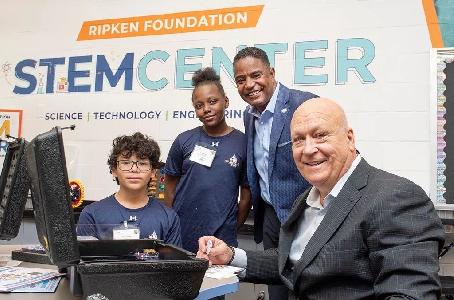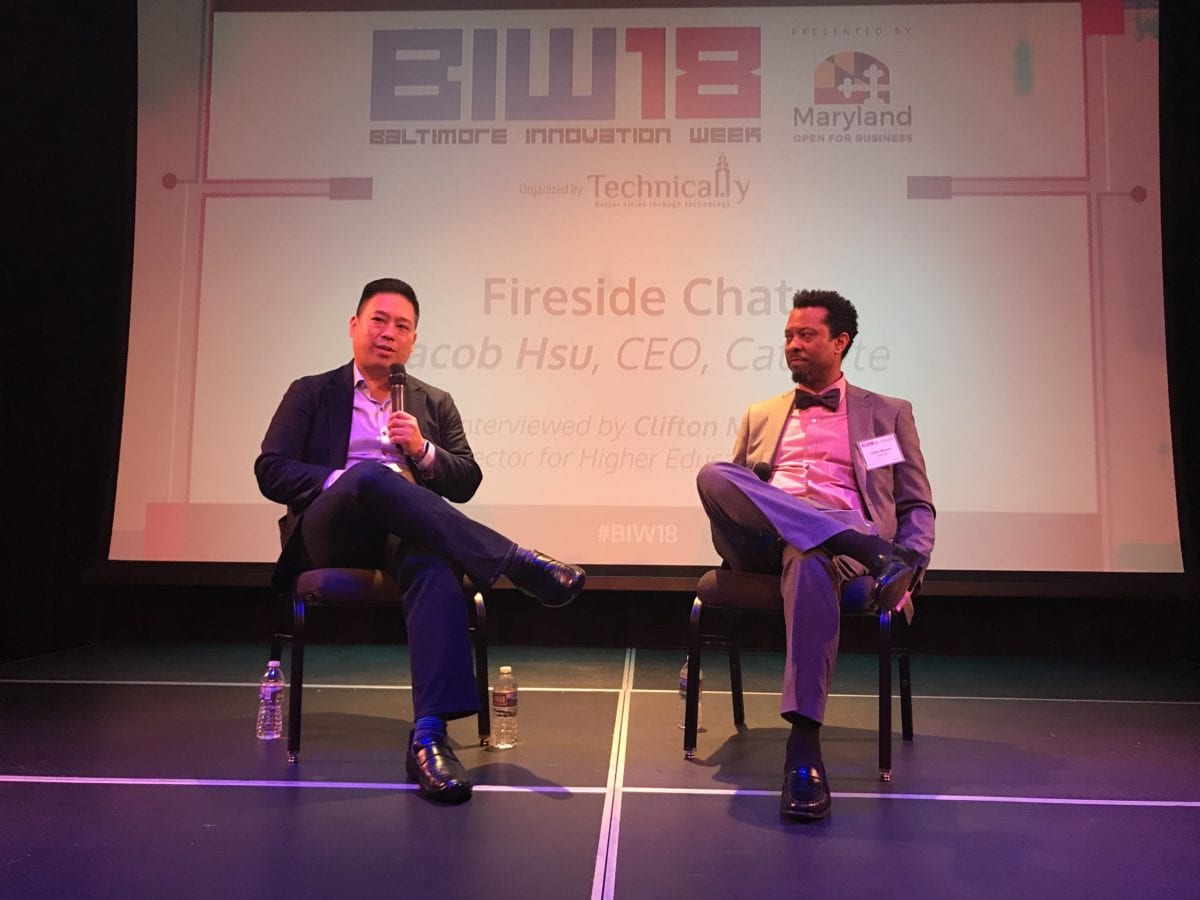Catalyte’s approach to hiring software engineers has built more diverse tech teams in local markets and powered a business that’s worked with big clients. Now it’s launching a platform to let companies tap into that process.
The Otterbein-based company’s combination of a training program and a skills assessment that uses predictive analytics to identify candidates from all walks of life has resulted in a new way to hire tech talent in a job with high workforce needs, and do so in a way that creates more diverse teams that more closely resemble the populations of the cities they’re in.
The company created that system to hire and train engineers employed by Catalyte, who then work on software projects for clients such as AT&T, Geico and Under Armour.
But with a new workforce training and development platform called Odyssey, it’s offering a way for other companies to use the tools that Catalyte developed to hire new engineers. It’s designed so that corporations that are re-skilling workforces or building a workforce locally can tap into tech talent from nontraditional sources.
Why? There’s a gap in the wider tech workforce that continues to grow as companies are looking to add more tech workers, and is prompting companies to seek ways to retrain their own existing workers to fill the open roles.
Even as a company working on the problem, Catalyte Chief Revenue Officer Todd Horst said Catalyte accepts that it can’t do all of that hiring alone.
“If you think about the magnitude of the problem in America in terms of the tech talent gap, this is the way to help companies solve that problem at scale — to give them the keys,” Horst said of Odyssey.
One way to look at Catalyte’s own approach is essentially as a retraining effort focused on a specific local area, so it makes sense that a corporation or mid-market company looking to bring a new skillset for a small village-sized group of its own workers could tap into that, as well. And for Catalyte, it’s a way to scale the approach that was built and developed over the company’s 18 years.
“We stay closely involved to make sure quality is consistent, but ultimately they can look at this more as a way to build their own technology workforce,” Horst said.
Instead of traditional resumes and hiring processes that draw on education and background and have been known to create bias, Catalyte’s platform uses predictive analytics and data tools to identify folks with a high aptitude for software engineering. Prior experience as a software developer isn’t required, and the company has stories of truck drivers and plumbers becoming software developers.
For Catalyte, it marks an entrance to a market that’s closer to a product than services. But it’s not as though all the company’s offerings will be automated.
“The key part of what we do is we stay with people,” Horst said.
Along with the AI, Odyssey includes a five-month training program that’s designed to build skills on both the tech and team side. It also involves working on real projects, and teaming with “journey coaches” who can provide help with specific skills. The platform also measures progress along the way using metrics that are designed to help the process.
And Horst said the focus remains on hiring local, which is key in a tech market that can involve offshoring. The companies will use the platform to build a workforce in the area where it’s being used, so it’s being piloted in areas where Catalyte already has a development center where it’s hiring workers.
The number of areas with such a center recently grew, as the company recently expanded to Boston. That adds to Chicago, Denver and Portland, along with Baltimore.
“The thing that companies are really dying for right now is to build their own workforce in the markets that they’re in,” Horst said.
The Odyssey platform has been in development for a few years, and involves a core of Baltimore team members. There’s a full-circle story here: Horst said that engineers who were brought on and trained through Catalyte’s system are now members of the team that’s spreading it to other companies.
Join the conversation!
Find news, events, jobs and people who share your interests on Technical.ly's open community Slack

Baltimore daily roundup: The city's new esports lab; a conference in Wilmington; GBC reports $4B of economic activity

Baltimore daily roundup: Find your next coworking space; sea turtle legislation; Dali raided and sued

Baltimore daily roundup: Johns Hopkins dedicates The Pava Center; Q1's VC outlook; Cal Ripken inaugurates youth STEM center


